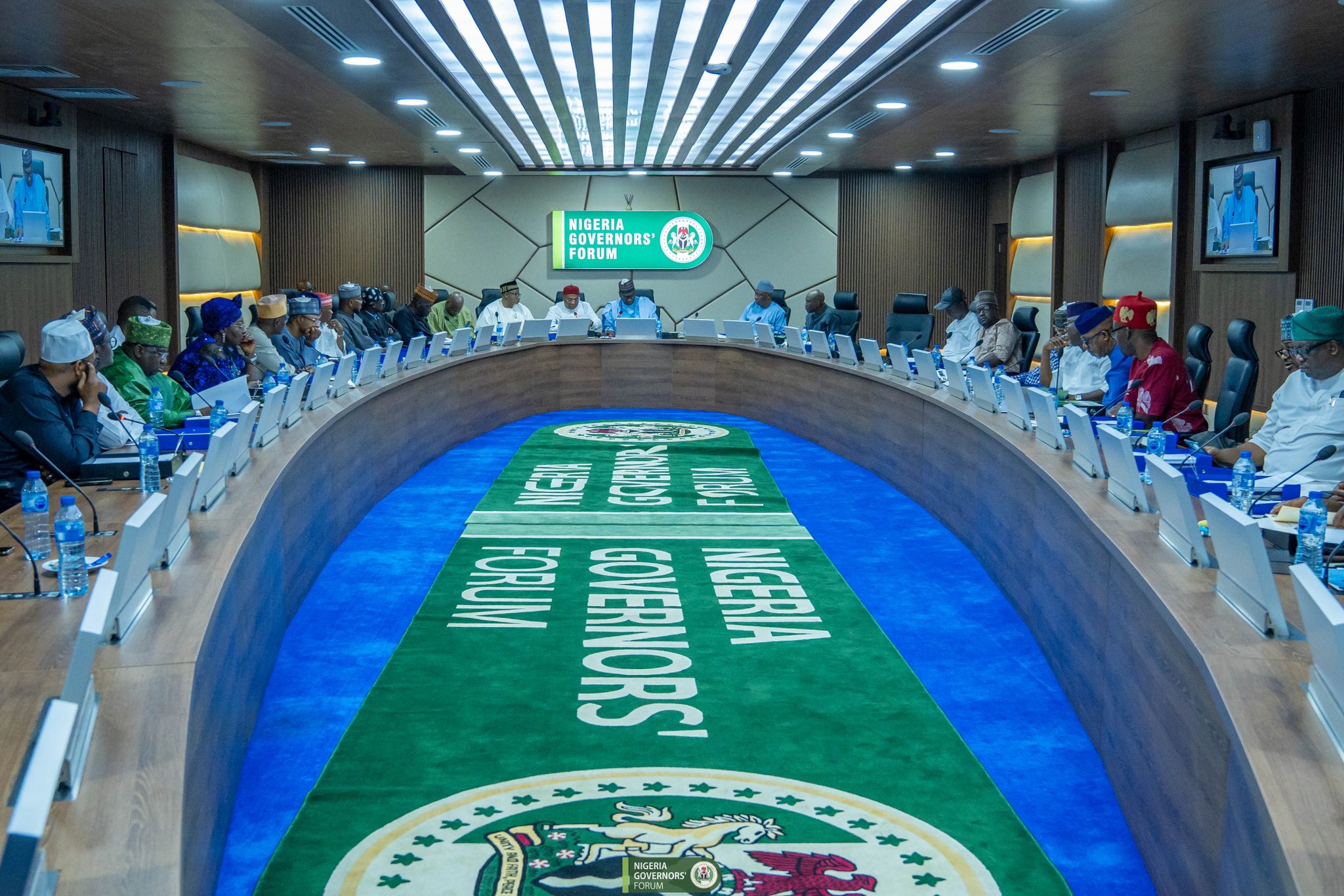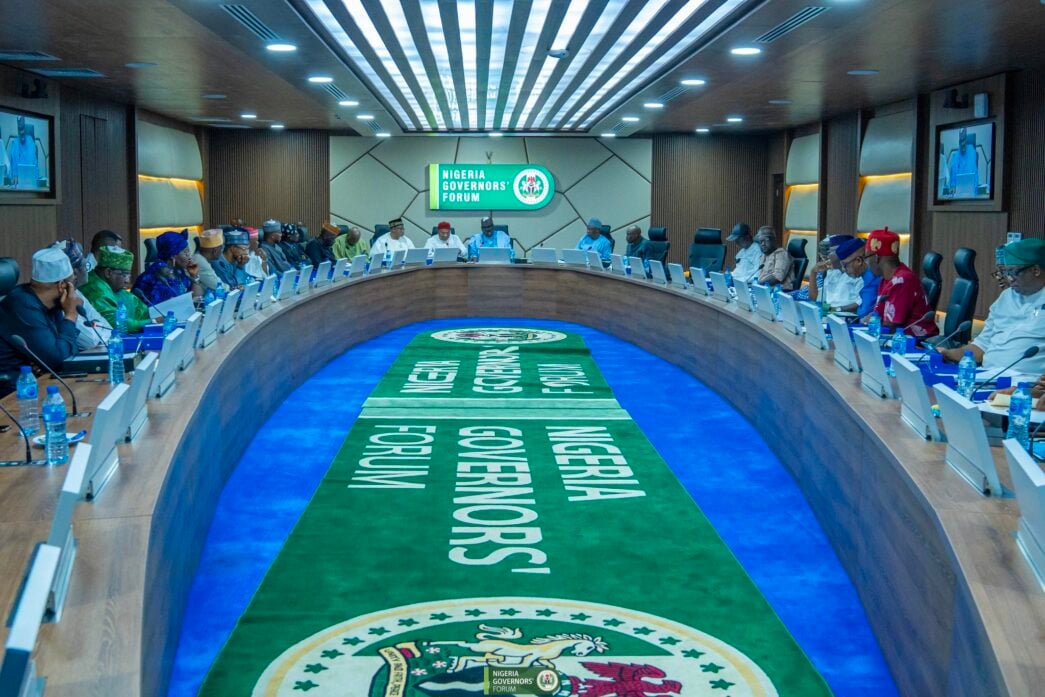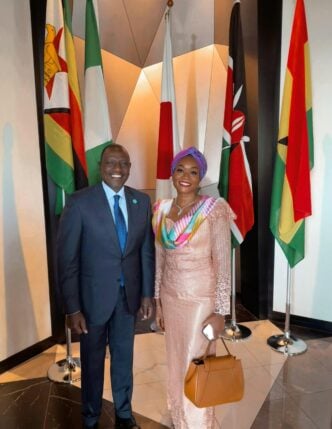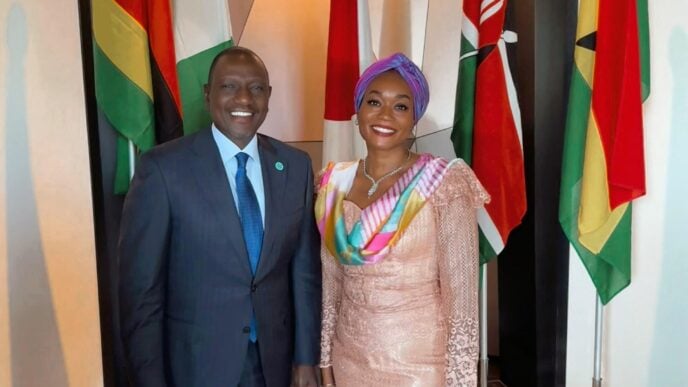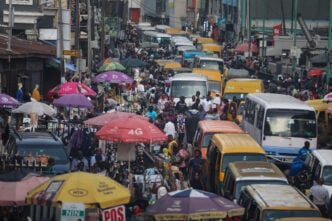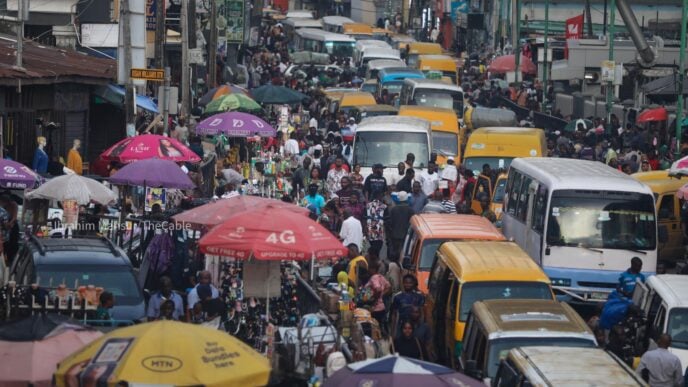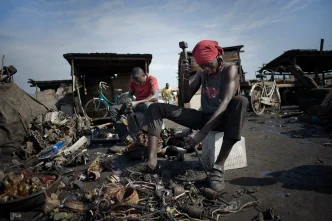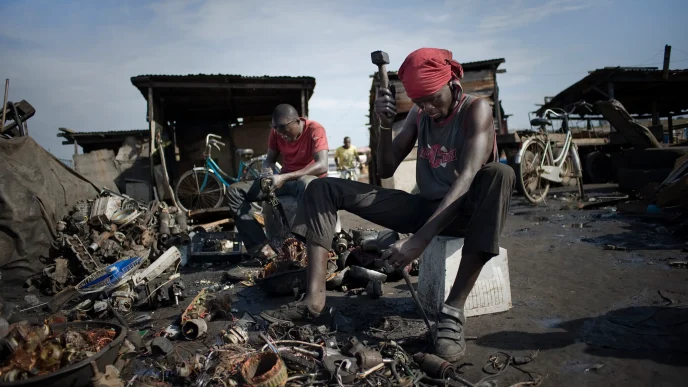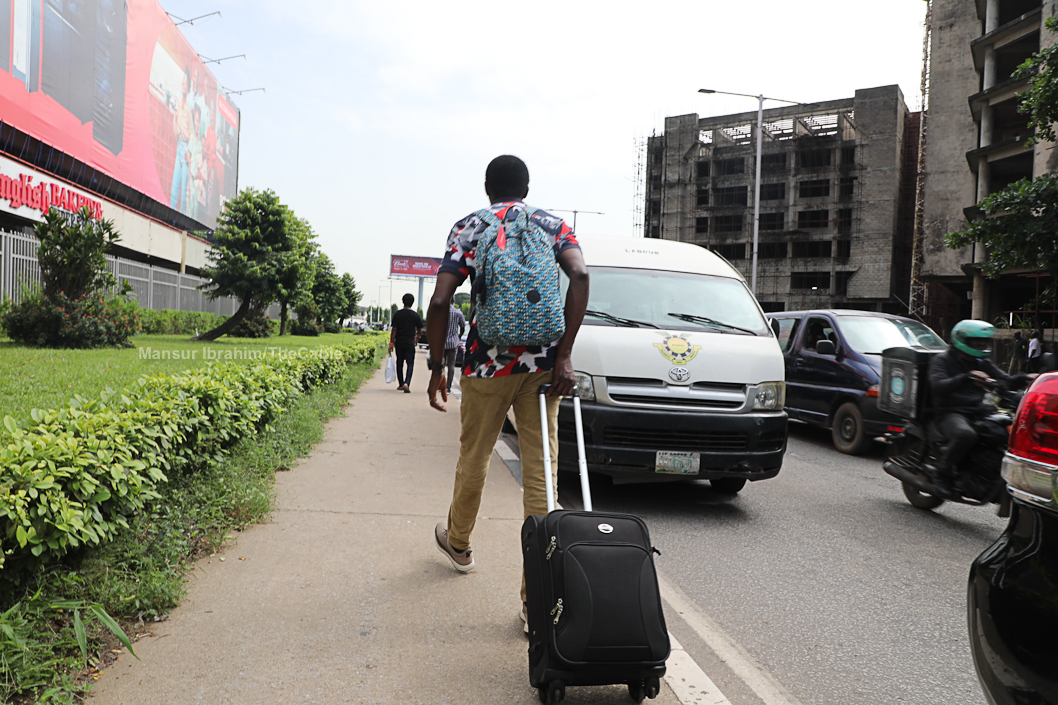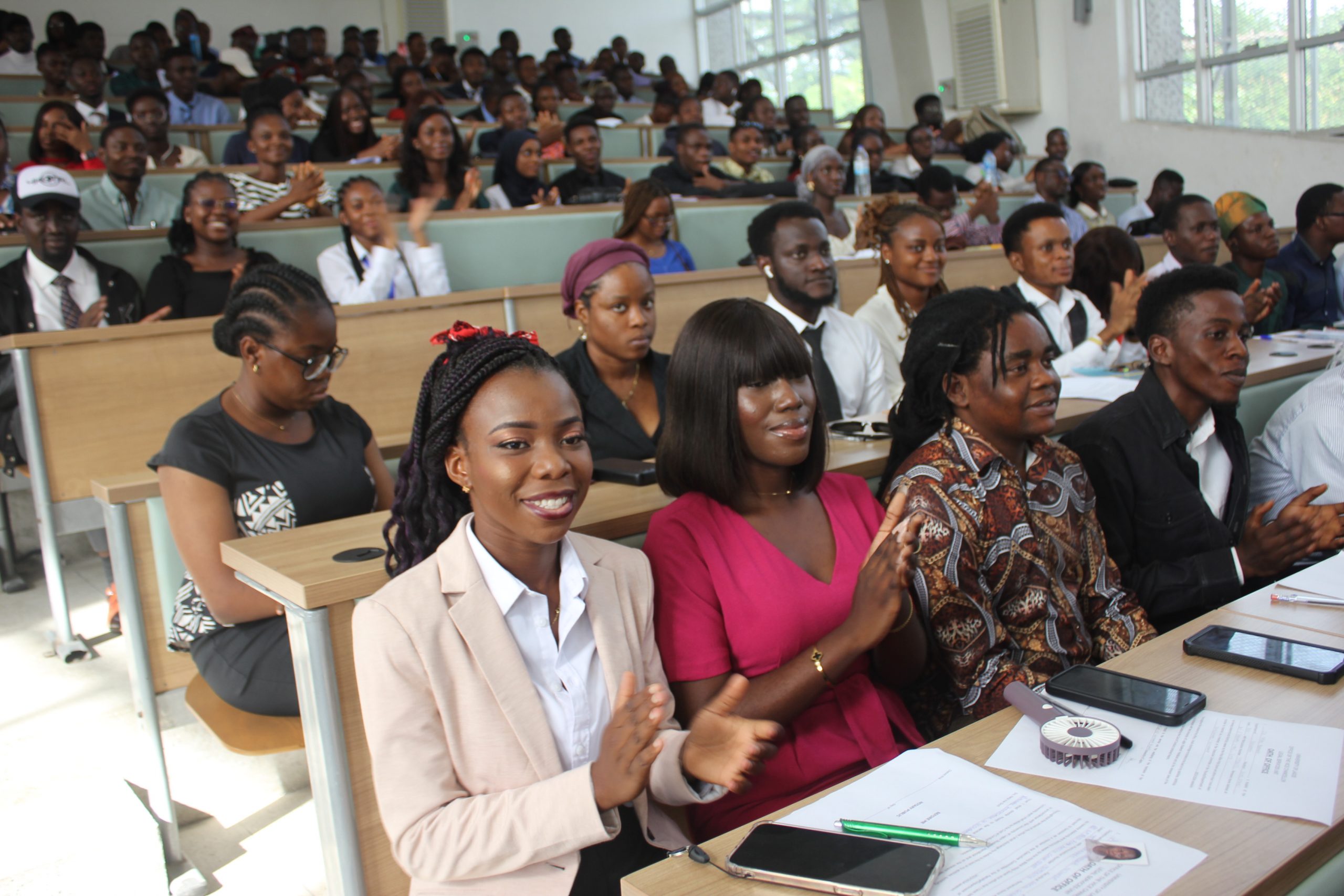Nigeria Governors' Forum | File photo
BY BAYO OLUPOHUNDA
In Nigeria’s democratic journey, no political office has enjoyed as much attention, criticism, or obsession as the presidency. In a country that presumably operates a federal system of government, every misstep, every policy, every failure is placed squarely at the doorstep of the president. Yet, lurking quietly in the shadows are the 36 state governors – elected emperors in their own right – who preside over vast resources and wield enormous influence, often without the same intensity of scrutiny as Aso Rock.
Since the return to civilian rule in 1999, the governorship position has evolved into one of the most coveted and powerful positions in the federation, offering both political clout and control over billions in federal allocations. But unlike the president, the occupiers of this position have mastered the art of governing under the radar, escaping the kind of accountability and scrutiny their office truly demands. Yet every month, a chunk of Nigeria’s oil and tax revenue is transferred from the federation account into the coffers of the 36 state governments controlled exclusively by the governors.
For example, over the last two years of the President Tinubu-led administration, Nigeria has undergone one of the most significant fiscal shifts since the inception of the Fourth Republic. The removal of fuel subsidy and exchange-rate reform have unleashed a disbursement of state funds, as the federal government’s savings have flowed downstream.
Advertisement
According to reports, in 2024, FAAC allocations – the funds shared across all tiers of government- rose to ₦15.26 trillion, up from roughly ₦10.9 trillion in 2023 and ₦9.18 trillion in 2022. State governments alone received ₦5.81 trillion in 2024, a staggering 62 percent rise from ₦3.58 trillion in 2023. Another source notes that in 2024, the 36 governors shared ₦5.22 trillion, a 45.5 percent increase over the previous year. It is widely acknowledged that state governors now wield more resources than they have in decades – but have they delivered?
Tragically, it is public knowledge that vital infrastructure and amenities, pipe borne water, security, roads, hospitals, job creation, urban renewal programmes and agricultural support have remained woefully deficient across the states. Yet, Nigerians continue to direct the lion’s share of their criticism at Abuja. Governors who wield the responsibility are let off the hook.
This raises a critical question: How can we build an accountable Nigeria if our focus is wrongly placed? In Nigeria’s federal system, the constitution assigns distinct roles to each level of government. The federal government handles national defense, foreign affairs, national economic policy, monetary policy, immigration, mining, rail and air transport regulation, and similar national duties.
Advertisement
State governments are responsible for primary and secondary education, healthcare, agriculture,, road maintenance within the state, intrastate infrastructure, rural development, and internal security. Local governments manage local markets, primary healthcare clinics, local roads, waste management, community primary schools – the grassroots work of democracy.
Federalism was meant to distribute governance and accountability. But the centralisation of public attention framed largely by the media and the political class places the burden of expectation on the presidency has distorted that purpose. Take roads: How can we explain how state roads – crumbled, unreliable and dangerous – become the responsibility of the president? Another example is primary health care centers, primary and secondary schools across the 36 states all in dilapidated condition. Yet, we continue to blame the presidency. When governors fail to perform their constitutional responsibility, we blame federal neglect. This is absurd.
Worse still, many Nigerians do not know how much their governors are receiving – or fail to demand improvements where funds ought to enable them. In 2024, Lagos state received the highest FAAC allocation at ₦531.1 billion, followed by Delta with ₦450.4 billion, Rivers ₦349.9 billion; on the lower end, Nasarawa received ₦108.3 billion, Ebonyi ₦110 billion, and Ekiti ₦111.9 billion. Between June 2023 and May 2024, Delta received ₦519.9 billion, Lagos ₦512.2 billion, Rivers ₦475.1 billion; Akwa-Ibom ₦391.8 billion, and Kano ₦312.9 billion.
These funds are enormous.
Advertisement
The governors, in a system where states generate internal revenue, can turn the fiscal tide – create roads, hospitals, jobs. Some do; most do not. Why? Many Nigerians, for example, have wondered why oil producing states like Bayelsa have not turned to Dubai despite the huge allocation accrued to the state since 1999. But isn’t the answer obvious?.
A 2024 Afrobarometer survey shows 62% of Nigerians feel life has worsened since subsidy removal, and only 18% believe the savings are being used well. The money flows upstream, yet outcomes lag further behind.
The media, civil society and public commentators share blame. Too often, state-level failure is framed as federal incompetence. Analysts and thought leaders rarely spotlight a failing governor.
Editorials rarely call State House occupants to order on potholes or schools. Ope-ed writers broadcasters, OAPs focus on Abuja. The message to citizens rings loud: the President is to blame for everything, governors are irrelevant. This undermines democracy and is the reason for the decay we see all across the Nigeria today.
Advertisement
But as Nigerians, we must remember that federalism is not just constitutional jargon. It is the whole essence of our democracy – it is meant to diffuse power, encourage proximity to the grassroots, and promote accountability. If governors fail, citizens should demand answers. The question to ask is? “What are you doing with the ₦500 billion you received from the federal government? Why are our roads collapsing? Where are the hospitals? Where are the jobs?” Why are our primary schools like detention centers?
Governors, not the president, determine allocations for education, health, security, agriculture. We must ask them. Call them out. Nigerians must stop going online to curse “Abuja” for every failure. Some states do better than others – and it’s not about ethnic or political advantage. It’s about leadership. Lagos, for instance, often generates over two-thirds of its revenue internally, and has visibly invested in public infrastructure.
Advertisement
Meanwhile, states receiving similar allocations often show little progress. Research from Agora Policy shows 30 states continue to rely on FAAC for 73.8% of their revenue in the first half of 2025. The imbalance in governance outcomes stems not from money – but leadership. Some governors are seen attending parties and frivolous events more than they should be governing. I am not calling for an abdication of federal responsibility. The presidency should continue to pursue macroeconomic stability and equitable revenue sharing. But Nigerians, especially voters, must refine and refocus their critique to target the right institutions.
Media professionals must do better. They must analyse state budgets. Track security votes – like Delta state ₦2 billion monthly, Anambra’s ₦850 million, Rivers’ ₦1.5 billion. Report on IGR figures. Investigate budget performance. Flag failures. Host compare-and-contrast conversations between states. Show what good leadership yields. The Revenue Mobilisation Allocation and Fiscal Commission has introduced revisions to sharing formulas that favour states; RMAFC reports now include breakdowns of allocations. But there is little follow-through either from the media, Nigerians and civil societies groups. State assemblies often rubber-stamp budgets without oversight. Where are the audit demands, the public hearings?
Advertisement
Without reigning in the governors, Nigeria will continue to struggle. Reforms cannot succeed if the governors negligence persist. Nigerians must demand accountability at all tiers. In the end,holding states accountable comes down to responsive citizenship, awareness and action. Nigerians should know the revenue states receives – ask their commissioners, LGA chairmen check Nigeria Extractive Industries Transparency Initiative (NEITI) data, read FAAC breakdowns. Demand that allocations be turned into schools, clinics, roads.
If Nigerians continue to blame only the presidency and cradle our governors in silence, we accept the erosion of the very nature of federalism as spelt out in the 1999 constitution. Nigerians must shift the national conversation: governors deserve direct attention. Only then can Nigeria’s federalism become a tool for development, rather than a cover for partisan distraction. It is important to remember that while Nigerians rightly intensify scrutiny of the presidency, the governors – who now enjoy substantially increased revenue – must no longer escape public accountability.
Advertisement
These ballot-facing sums governors are receiving should be transforming the states. The media and civil society must amplify this message: governance in a federation requires oversight at every level not just the presidency.
The presidency may be the face of national politics – but real change starts in every state capital- from Uyo to Gusau, from Akure, Ado- Ekiti to Ababkaliki. Governors must either deliver, or face the judgment of the people they purport to serve. The media, civil society, and thought leaders must also stop indulging the national obsession with Abuja and help Nigerians focus on the real centers of governance – the state capitals.
When citizens confront their governors consistently and publicly, when they demand transparent budgets and visible results, governors will have no choice but to deliver. If citizens do not hold them accountable, the cycle of waste, neglect, and excuses will continue. Nigeria’s real change begins when Nigerians start asking their governors – not just the president – for answers.
Views expressed by contributors are strictly personal and not of TheCable.
